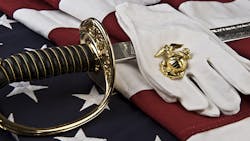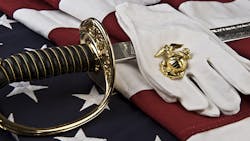“Safety brings you home.”
That phrase – the theme of EHS Today’s 2014 Safety Leadership Conference – is one I often hear expressed by those in the EHS field.
The words may be different, but the sentiment is the same.
It means operating safely, being proactive, avoiding risks, creating a safe culture in the workplace brings you home at the end of the day.
It’s common for such oft-repeated slogans to become hollow clichés, to lose their meaning with every casual utterance.
But this one shouldn’t.
Last week, I saw Pulitzer Prize winning journalist – and current Case Western Reserve University professor – Jim Sheeler speak.
As the featured guest during a Society of Professional Journalists event in Cleveland, Sheeler discussed his featuring writing series – Final Salute - that earned him the top journalism honor and more than a fair share of tears (my own included).
In the series, Sheeler followed a casualty assistance officer for the Marines breaking the news to families that soldiers – brothers, fathers, sons – would not be coming home.
The stories offer glimpses into the lives of the families, the communities, after a soldier’s death.
Sheeler introduces us to Katherine Cathey who was pregnant when the casket carrying her husband’s body was unloaded onto the airport tarmac in Reno, who refused to leave her husband’s side during the night before his funeral, an image burned into the public’s memory by Todd Heisler’s Pulitzer-winning photograph.
No Marine Left Behind
The Marines, too, have a mantra: No Marine Left Behind.
“Marines will intentionally risk their own safety to aid wounded comrades, or to retrieve the remains of fallen comrades,” as the code reads.
For those Marines, death was inevitable. No amount of PPE or OSHA regulations could have protected them as they protected us.
But, for us, safety is the difference between life and death. A hard hat can save the life of a construction worker. Flame-resistant clothing can bring an electrician home after an arc flash.
Safety is our responsibility, not only for ourselves, but for our families, for our communities.
Because we have a choice.
Where those soldiers didn’t.
About the Author
Ginger Christ Blog
Associate Editor
Ginger Christ is an associate editor for EHS Today, a Penton publication.
She has covered business news for the past seven years, working at daily and weekly newspapers and magazines in Ohio, including the Dayton Business Journal and Crain’s Cleveland Business.
Most recently, she covered transportation and leadership for IndustryWeek, a sister publication to EHS Today.
She holds a bachelor of arts in English and in Film Studies from the University of Pittsburgh.

